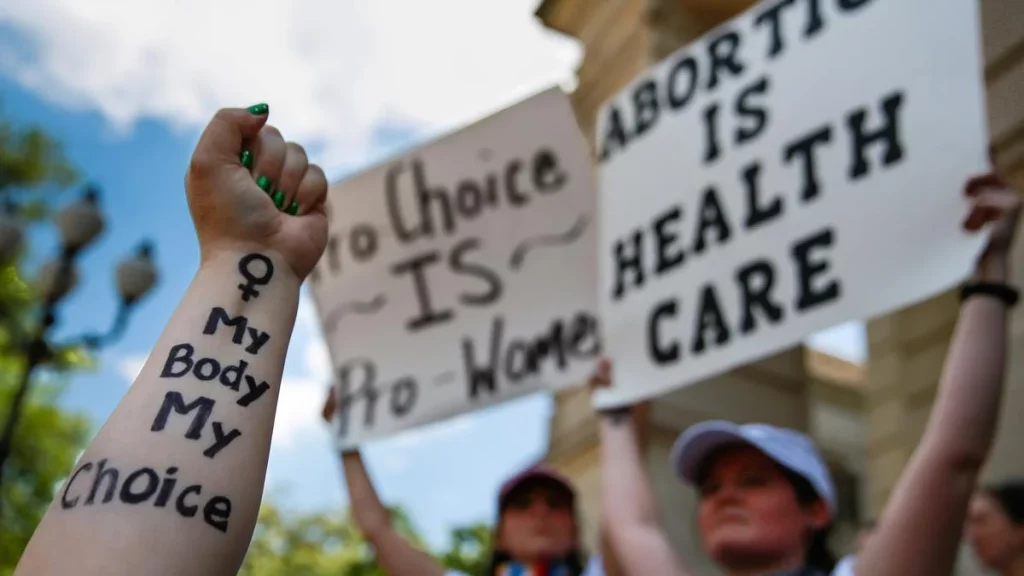As last week’s news that the Supreme Court is preparing to overturn Roe v. Wade set in, commentators on both sides weighed in on how the bombshell ruling might register with voters ahead of the 2022 midterms. Was it an opportunity for Democrats to seize the narrative, despite facing an uphill battle to defend their House majority in a Republican-leaning environment? Or had the die already been cast? After all, as The New York Times recently described it, with high inflation and President Biden’s approval ratings sinking, 2022 is a Republican environment “so favorable [that] one Republican consultant said only half in jest that he would advise candidates to “take a long vacation and come back in November.”
On the Left, politicians and organizers alike were optimistic that an assault on Roe could energize voters, especially among the coveted young-voter demographic. “This is the biggest fight of a generation, Jake,” Senator Kirsten Gillibrand, Democrat of New York, told CNN’s Jake Tapper over the weekend on “State of the Union.”
“[Women] are half-citizens under this ruling,” Gillibrand said, “And if this is put into law, it changes the foundation of America.”
And while Democratic candidates across the country were quick to unite in opposition to the court’s leaked ruling, many of them also saw a chance to contrast themselves with their Republican counterparts. In Pennsylvania, where State Attorney General Josh Shapiro is running unopposed for the Democratic nomination for Governor, his campaign reported its best day of fundraising for the cycle after the Supreme Court’s draft opinion leaked. And according to The Philadelphia Tribune, Shapiro “said in an interview last week that he expected the general election to become a referendum on abortion.”
Noting the pro-life bent of the deeply red Pennsylvania legislature, as well as the public remarks of his Republican challengers—all seeking to court the far-right Trumpist vote–Shapiro addressed on-the-fence voters saying “The legislature is going to put a bill on the desk of the next governor to ban abortion. Every one of my opponents would sign it into law, and I would veto it.”
Other Democratic candidates for offices nationwide also pounced on what they saw as a similar opportunity:
Republicans meanwhile, were apparently unconcerned about political blowback. They went into a flurry of promises over the weekend to further restrict abortion access, or even in certain states to eliminate it entirely. This willingness to double down on overturning Roe as a winning cultural issue is perhaps best exemplified by the often recalcitrant Senate Minority Leader Mitch McConnnell, who gave an interview over the weekend in which he hinted that a national ban on abortion was “possible.”
But the more strategic Republican response was to shift focus back to the economy. As Republican strategist Glen Bolger told The Times, “Conventional wisdom right now is this helps Democrats because it will spur turnout, but it also could certainly spur turnout for base Republicans. Generally, most voters [will] focus on the economy, and right now, of course, inflation is dominant.”

